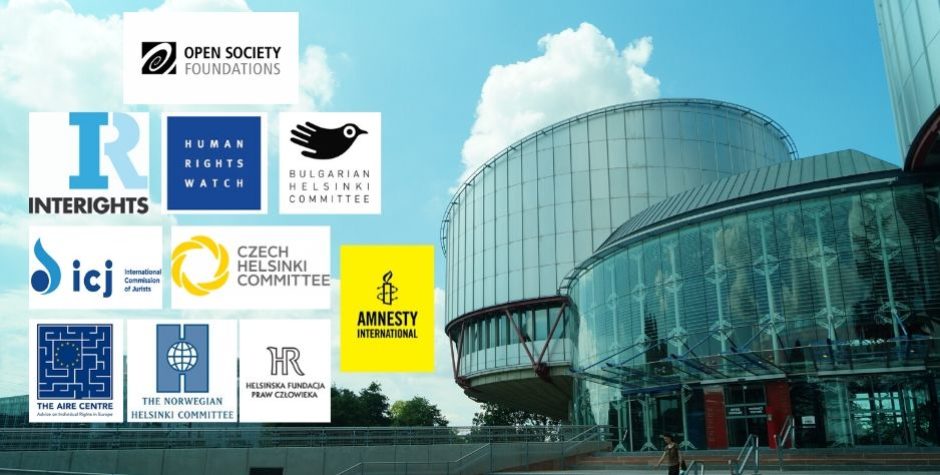

Conflicts of Interest Between Judges and NGOs: the ECHR Finally Establishes a Recusal Procedure
Conflicts of Interest Between Judges & NGOs: the ECHR Establishes a Recusal Procedure
It may seem obvious; however, it took four years and intense debates for the European Court of Human Rights to agree to establish a procedure for challenging its judges in case of a conflict of interest. It finally did so on January 22, 2024.
This necessary amendment to the Court’s Rules directly follows the publication of two reports by the ECLJ.
The first report, titled NGOs and the Judges of the ECHR , published in 2020, gained worldwide attention and exposed the ECLJ to multiple reprisals. It revealed that at least twenty-two out of the hundred permanent judges of the ECHR come from seven NGOs active at the ECHR and have ruled on more than a hundred cases brought by their own NGOs, thereby placing themselves in a clear conflict of interest. This report caused a particular scandal as it disclosed that among these NGOs, George Soros’s Open Society is notably prominent with at least twelve judges originating from its network. Furthermore, it funds the other six NGOs from which the remaining ten judges come.
Three years later, The ECLJ further investigated the internal dysfunctions of the ECHR in a new report titled The impartiality of the ECHR - Problems and recommendations. As the name suggests, it contains a series of recommendations addressed to the States and the Court to strengthen its impartiality. Leading among these recommendations is the adoption of a recusal procedure. This is finally accomplished in Article 28 of the Rules of Court, now titled ‘Inability to seat and Recusal.”
The Court has also adopted a four-page “Practice Directions” on the recusal of the judges, appended to its Rules, which outlines the recusal procedure. In doing so, it has incorporated two additional recommendations from the ECLJ. One aims to allow applicants to know in advance the identity of the judges likely to decide their case. The other explicitly clarifies the possibility of requesting the reopening of a case after a decision of inadmissibility. Such a possibility is necessary, especially if the applicant discovers that a judge who issued the decision was in a conflict of interest. These are technical, but significant improvements to the functioning of the Court.
The adoption of these internal reforms is the culmination of a lengthy process accompanying the publication of the ECLJ reports and initiated notably by the submission of a petition with 60,000 signatories to the Parliamentary Assembly of the Council of Europe. Thanks to our initiative, several member states of the Council of Europe requested and obtained the establishment of an intergovernmental committee of experts tasked with a drafting report on ways to strengthen the independence and impartiality of judges.[1] Grégor Puppinck participated in this group of experts.
It is this dual pressure, exerted through the Parliament Assembly and the Governments, which persuaded the European Court to adopt these reforms. The challenge for the ECHR system was to address this significant issue of conflicts of interest without publicly acknowledging its existence, so as not to undermine the credibility of the Court.
The adoption of this recusal procedure in January 2024 is the most meaningful change achieved through the reports of the ECLJ. In the previous years, two other reforms had also been adopted by the ECHR, and they too followed our recommendations.
On September 2, 2021, the Court adopted a new “Resolution on Judicial Ethics”, strengthening the ethical obligations of the judges, particularly their obligations of integrity, independence and impartiality. Echoing the ECLJ report, this resolution requires judges to be independent of any institution, including any “private entity” referring to NGOs and other foundations. Regarding impartiality, the text adds explicitly that “Judges shall not be involved in dealing with a case in which they have a personal interest,” thereby reinforcing the prevention of conflicts of interest.
On March 20, 2023, another response was provided by the ECHR to the ECLJ reports through the publication of a “Practice Directions” on third party interventions. This aims to enhance transparency in the actions of NGOs at the Court. The ECLJ had revealed that NGOs often operate covertly, both as applicants and interveners in the same case, concealing their ties to parties or judges.
The ECLJ notes with satisfaction these internal reforms within the ECHR and is pleased that its advocacy work is bearing fruit. The ECLJ emphasizes that its intention in this advocacy work has always been to serve justice and, consequently, the proper functioning of the Court.
The ECLJ will continue its assessment of the functioning of the ECHR.
In this regard, the ECLJ recommends that the Court continues its internal reforms, notably by requiring judges to publish a declaration of interests. It urges the Court to ensure transparency in its registry and the impartiality of its members. This involves publishing the list of its members, following the good practice of the European Court of Justice or the Inter-American Court of Human Rights.
The ECLJ also recommends that States no longer propose activists from NGOs as judges at the ECHR but only judges with extensive judicial experience. It further advises applying the same selection criteria to the appointment of “ad hoc” judges, i.e., substitutes.
Beyond these institutional aspects, the ECLJ will continue to engage with the Court to ensure that its jurisprudence adheres to a fair interpretation of human rights and the interests of the peoples.
________
[1] "CCDH, Mandate of the Drafting Group on Issues Concerning Judges of the European Court of Human Rights, CCDH (2022) R96 Addendum 3, 11/07/2022."













